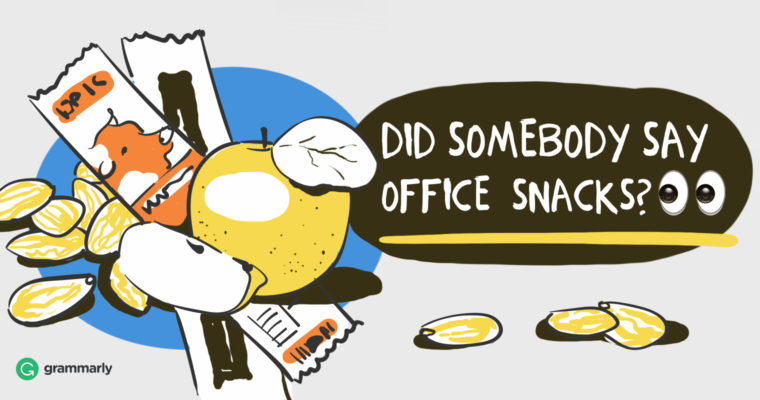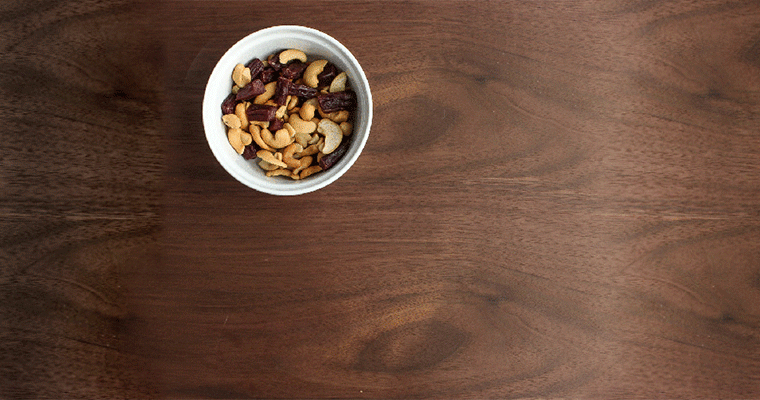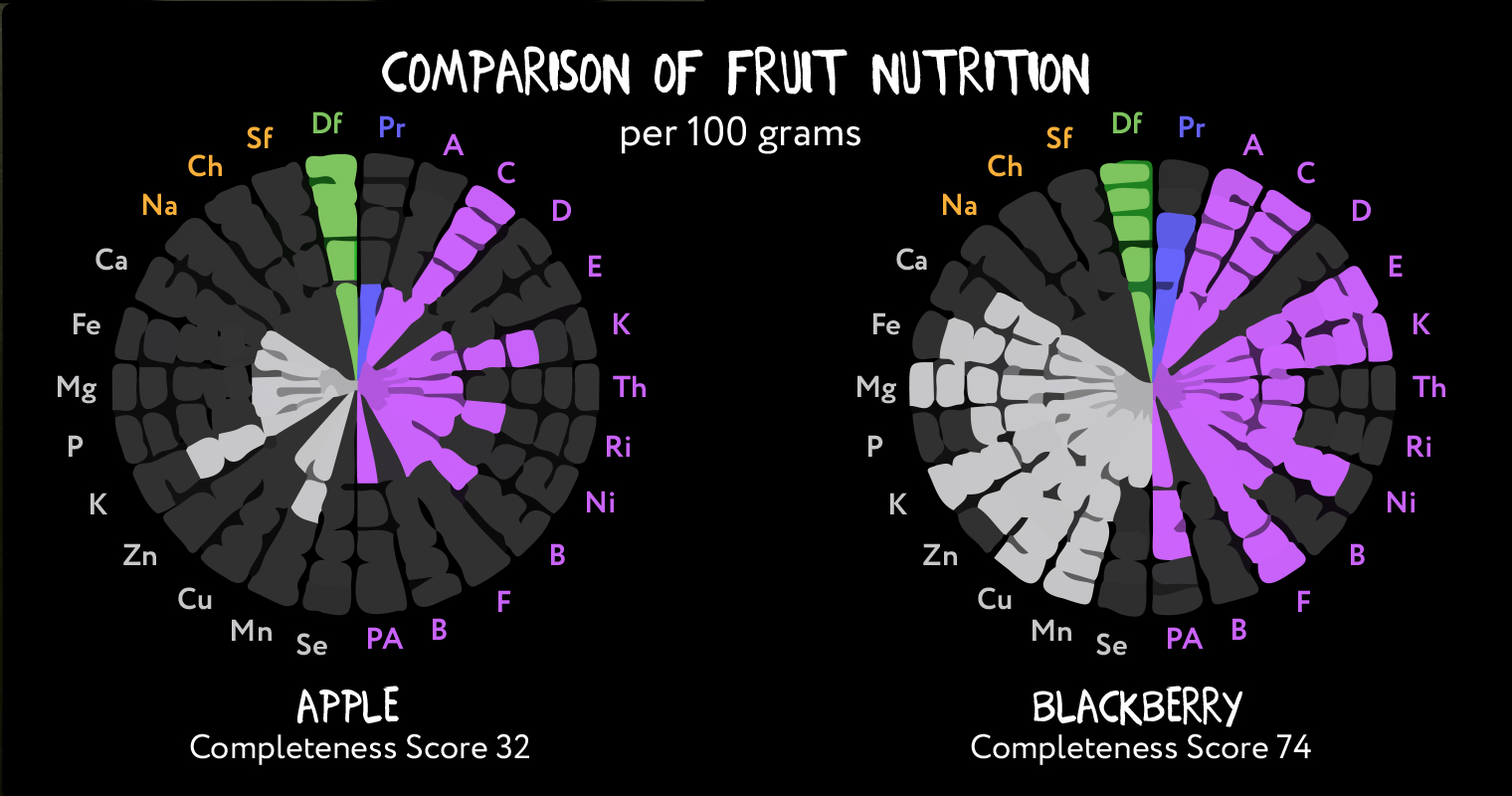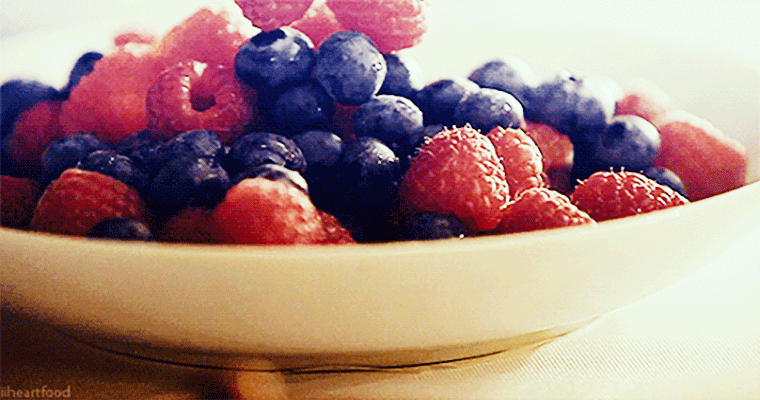
You may not think about it much, but having a brain and using it requires a lot of energy.
Despite making up just 2 percent of the average adult’s body weight, the brain uses more than 20 percent of the body’s total energy. There’s no 80/20 rule at work here; the human brain is far and away the most energy-consumptive organ in the body.
And that’s not all.
According to brain studies, the amount of fuel needed for your brain is constant, meaning your brain is always hungry.

Despite the significant energy demands of your brain—not to mention the other 98 percent of you—it’s not a given that if you eat enough, you will improve brain function, write better, and take over the world. In fact, poor food choices throughout the day often derail your productivity rather than fuel it. Healthy food choices will do much more than simply feed you and your brilliant brain—they will make it easier for you to concentrate, increase bloodflow to your noggin, boost your mood, and keep you satiated.
There are a lot of scientific reasons that unhealthy food can be so damaging while healthy food can be your gateway to becoming the next superhuman (or something like it). Most of the difference comes down to vitamin and mineral content per calorie and how quickly your body metabolizes the food. We won’t get too much into the science here, but we can give you some guidelines and ideas to take your snacking game—and performance—to the next level.

How to Snack Like a Productivity Genius
Follow these simple guidelines to choose healthy office snacks that will power your creativity and productivity.
- Avoid high carbohydrate foods or simple carbohydrates. To prevent blood glucose and insulin spikes, pass on foods like baked goods, candies, sugar, etc. Peaks and troughs in your blood glucose and insulin levels in the short-term will leave you hungry, craving more, and likely distracted. In the long-term, there’s mounting evidence that sharp fluctuations in insulin levels contribute to the development of a number of metabolic disorders like diabetes, Alzheimer’s, and even cancers.
- Eat your vitamins and minerals. Whole-food fruits and vegetables of a variety of colors pack a powerful nutritional punch with a small caloric load. Even cooler? Some of these components can improve blood-flow, prevent oxidation, and improve memory in the short-term. Fiber in these foods also keeps hunger in check while boosting happiness. Fiber feeds a healthy gut microbiome, which is responsible for the majority of serotonin production in the body.
- Prioritize quality protein and fat to avoid feeling hungry. Protein and lipid metabolism take longer than carbohydrate metabolism. Combining healthy proteins and fats like nuts, canned fish, or avocado with your snacks and meals keeps hunger at bay. As a bonus, your brain thrives on the healthy fats found in whole-food fish, grass-fed meat, and vegetables.
- Chow down regularly. This doesn’t mean you necessarily need to increase your daily caloric intake. What it means is that you should remember to eat regularly, rather than skip breakfast and lunch in order to get work done. Trust us, your writing and work will improve with food.
- Choose food products with a handful of ingredients. Generally speaking, fewer ingredients is synonymous with health because it often means fewer preservatives, dyes, sugars, and fillers.
- Stay hydrated. Obvious right? Not necessarily. Your body needs to be hydrated to work correctly, and few people actually consume enough hydrating food and drink. Stick to fresh fruit and vegetables along with water or tea to ensure that you’re getting enough H2O.

Insanely Good-for-You Snack Ideas to Try this Week
While there are a lot of unhealthy options disguised as health food, there are some really amazing food products that make nutrition and busy schedules work together—deliciously. From traditional standards like nuts and fruit to new interesting meal-replacement options, we’ve got some brilliant snack inspiration for you.
1 Go nuts.
Nuts and seeds are a traditional staple of healthy snacking that remains one of the smartest snack choices you can make, assuming you select carefully. Raw, low-salt options are loaded with healthy fats, fiber, and minerals that will keep you feeling full and deliver a satisfying crunch.
Beware, however, that not all nuts are “healthy” options. Heavily salted varieties, just like a bag of chips, will mess with your hunger signaling and increase the chance of overeating. Additionally, roasted varieties are often roasted in unhealthy vegetable oils that increase oxidation in the body. Wilderness Poets supplies a large variety of seeds, nuts, and nut butters that are raw, organic, and minimally processed.
2 Be “berry” productive.
Try replacing some of your sweeter, lower-vitamin fruits—we’re looking at you apples and bananas—with more berries. These amazing fruits of the forest consistently rank as superfoods, taste delicious, and are easily accessible for most Americans.

For example, if we compare apples to blackberries, the difference is impressive. Just 100 grams (about 3.5 ounces) of blackberries provides 35 percent of your daily requirement of vitamin C, 25 percent of your daily requirement of vitamin K, and 32 percent of your daily requirement of manganese. In contrast, the same weight of apples provides only 8 percent, 3 percent, and 2 percent, respectively.
Wow.
Different berries have slightly different profiles, but they all pack a similar nutritional punch. Raw berries are best, but dried berries without added sugar can be a healthy addition as well. Sunset Valley Organics, for example, supplies clean, simple dried blueberries—the fruit linked to better brain circulation and improved memory! A note of caution, however: many berries require a lot of pesticides (bugs want vitamins too!). When possible, buy wild berries or wash produce thoroughly to limit pesticide exposure.

3 Choose quality protein.
Most of your healthy proteins should be in your meals, simply because it’s usually easier. However, there are some decent protein-rich snack options. Personally, I’m addicted to EPIC’s meat bars and snack strips. The meat bars, something between jerky and sausage, are flavorful and several options are sourced from wild or grass-fed stock. Plus, they’re a wonderful blend of fat and protein that keeps me going no matter what.
If chowing down on animals makes you squeamish, have no fear. Quest Bars are a solid vegetarian option. And they don’t kid around. Their bars have 20+ grams of protein while maintaining a low carbohydrate profile (read no blood-sugar spikes), and come in more than twenty-two flavor options. Though these bars fudge the “fewer-ingredients-is-better” guideline, when eaten in moderation they can really help fuel your work without issue.
4 Feel “fat-tastic.”
Fat has gotten a bad rap over the years. The demonization of saturated fat took down healthy fats with it. Luckily, appreciation for fat as a health food is starting to pick up; there are a lot of delicious options for snackers looking for lipids. With nine calories per gram, however, fatty snacks add up quickly. Watch your portions so you’re not OD-ing on any one kind of fat.
As always, the best kind of snacks are whole foods. Foods rich in mono- and poly-unsaturated fats make excellent snacks and include raw nuts, avocado, and olives. If you’re brave enough, reach for a tin of cod liver—rich in omega-3s and vitamin D. Just eat it in a ventilated space; it’s quite fishy. Healthy sources of saturated fats include boiled eggs, some cheeses, and coconut.
If something grab-and-go is more your style, try coconut chips, crunchy moon cheese, or even a bulletproof coffee.
5 Dig into “performance enhancers.”
And by that we mean: caffeine . . . and friends.
Caffeine in coffee, tea, and dark chocolate helps boost alertness and focus—as long as you don’t overdo it. If you become jittery, agitated, or distractible after consuming caffeine, try cutting back or trying a coffee alternative.

If you and caffeine don’t play well, there are many other healthy substances that help improve brain function, memory, and alertness. Low-caffeine green tea, ginseng tea and ginko tea, are some of the most preferred.
I’ll leave you with one last thought. Feeding your body and mind for success is as much about choosing the right foods as getting rid of the wrong ones. Excessive sugar combined with low-nutrient density foods steals vitality from your body. When choosing healthy snacks, it’s a good idea to try to replace unhealthy options with healthy ones. If you struggle to make the switch, start with one food or food group and use the guidelines above to decide.
What is your go-to healthy snack?





